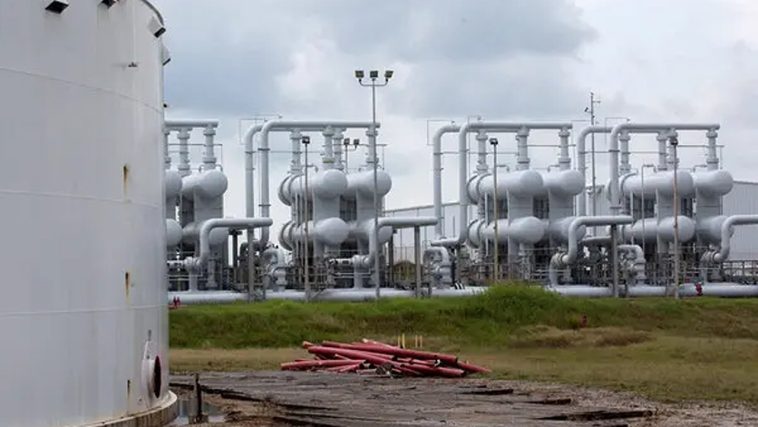LISTEN HERE:
The World Bank brought attention to a potential crisis on Monday, as it highlighted the possible surge in oil costs due to escalating tensions in the Middle East. The bank painted a picture where a significant amount of conflict could precipitate a decrease of 6-8% in the global oil supply.
In this scenario, it is predicted that oil prices could sky-rocket, seeing a considerable boost of 56-75% from the baseline recorded in the final quarter of 2023.
On the other hand, if the disruptions were of a medium scale, approximating a 3-5% dip, the resultant surge in oil prices would still be felt, albeit less dramatically, with an increase projected between 21-35%.
It is critical to highlight that the ongoing crisis in Ukraine has already strained and stretched the oil supply lines thin, adding a new facet of uncertainty to the global oil market.
While so far the overarching influence on pricing has been minimal, previous examples of militaristic confrontation in the region do suggest a resulting spike in prices and influx of market unpredictability. Based on past data, we could predict this escalating conflict has the potential to cause sharp decreases in oil supplies, with the actual impact being a function of the escalation’s duration and intensity.
Interestingly, since the conflict ignited in early October, we’ve witnessed a substantial rise in energy prices, increasing by as much as 9%. Oil prices weren’t too far behind with them seen ticking upwards by 6% in the same timeframe. This uptick was predominantly fueled by the future uncertainty and instability of the Middle East region.
According to the World Bank’s report, the global thirst for oil has reached new heights with a record-breaking daily demand of 103 million barrels marked in the third quarter of 2023. Several growth factors contributed to this increase, including an unexpected rise in air and transportation activities and a surge in China’s consumption.
Simultaneously, the easing pressure on the banking sector in mature economies has allowed for a smoother capital flow, further boosting oil demand. Despite the slash in production by OPEC, increased output from other countries, notably from the Americas, has somewhat balanced the scales.
When it comes to oil production, the U.S. continues its reign as the undoubted world champion, as outlined in the World Bank’s report. This ascendancy further serves to offset the depressed output by OPEC, thereby helping keep supply-demand dynamics in check under the current circumstances.
However, the escalating conflict poses several risks. In an environment of rising fuel prices, the specter of both global and domestic inflation looms. Because the price of fuel permeates all sectors, no industry is spared from the ensuing expenses.
Furthermore, an unexpected expansion of the conflict could possibly push the U.S., and consequently the global economy, towards a precipice leading to a recession. This would come on the back of the shockwave generated from the sudden jolt in oil prices.
In a press statement released recently, the World Bank’s chief economist, Indermit Gill, shed light on the concerning situation. The crux of his message underscored the need for policymakers to remain alert in navigating this turbulent landscape.
Should the Middle East’s instability exacerbate, we’re potentially looking at unprecedented energy difficulties. The global economy might be at the receiving end of a dual energy shock, a scenario that hasn’t been encountered in several decades.
The first part of the shock nucleus would originate from the unfolding strife in Ukraine. Coupled with this would be the potential adverse events unfolding in the Middle East. These twin shocks might conspire to buffet markets and economies alike.
We stand on the precipice of these ‘uncharted waters’ warned by the World Bank. Their warning serves not just as a precaution but also a blueprint for policymakers, helping them plan potentially necessary countermeasures.
The rise in oil prices as a result of the escalating conflict between Israel and Hamas could echo globally, potentially impacting markets and economies in an uncertain world. Policymakers, therefore, will need to be vigilant in their role, responding proactively and effectively.
The global oil market dynamics are balanced on a knife’s edge, with potential disruptions both in Ukraine and the Middle East posing a grave challenge. The ability to avoid a potential global economic setback could hinge on our leaders’ foresight and wisdom in the coming days.
As we look toward an uncertain future, it’s clear that the ongoing conflict in the Middle East and Ukraine presents a unique challenge. However, by interpreting and leveraging the insights provided by the World Bank report, we stand a better chance at navigating these rough waters.


